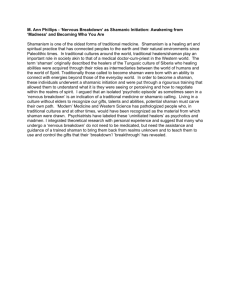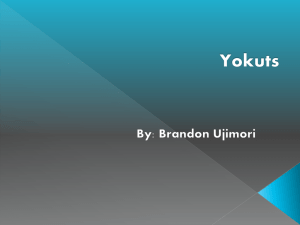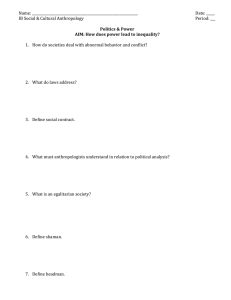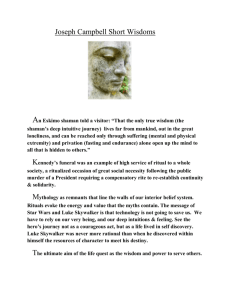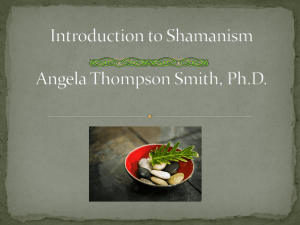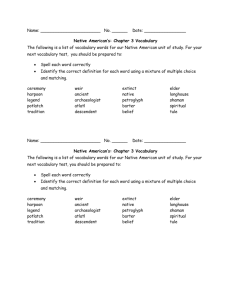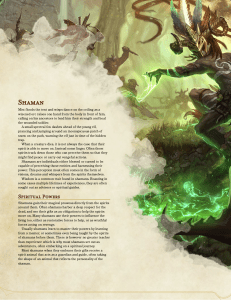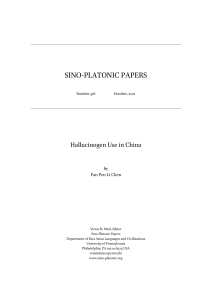Religious specialists Types of specialists
advertisement
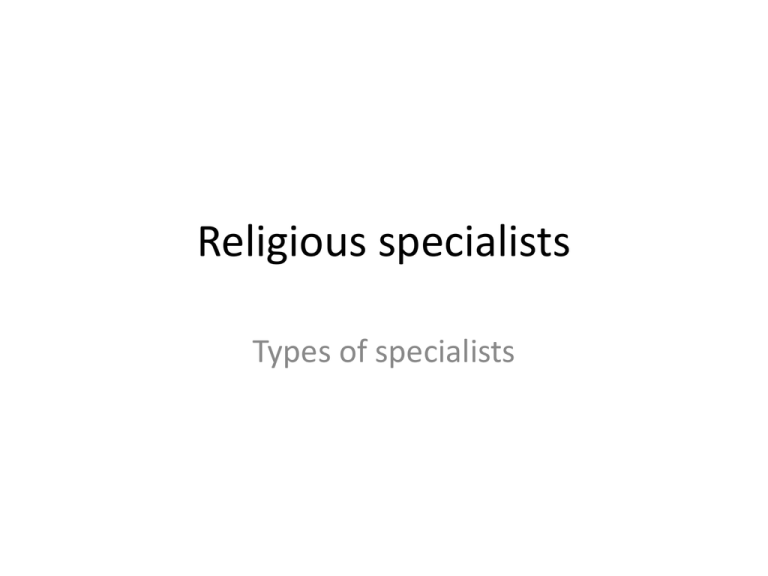
Religious specialists Types of specialists Across the societies • • • • • • Prophet Priest Shaman Medicine Men and women Gurus ( God men and women) Saints (other worldly) Max Weber’s Ideal Types of Authority based on legitimacy • Rational – legal ( is based on written rules or laws and is linked to explicit forms of justification like in govt, judiciary, private corporations and • Traditional based on passage of time as tradition, heritage • Charismatic authority, a divine gift leads to a change, movement or revolution in the field Saints : charismatic authority • Sorcerers, messiahs, Healers, Diviners, Shamans etc (examples) • Practical help and moral examples to the community • Saints as ascetic and “renouncers” can cause tension. • As exemplars and helpers • Example: Satya Sai Baba,His Holiness Dalai Lama among others Prophet Prophet- receiver of “a persona call” revelation & a divine gift • Achieve ecstatic state, healing, divination & telepathy. Max Weber (1978): exemplary and ethical prophet The problem of the prophet’s continuity with routinization of the movement “Routinize” authority with firm rules to preserve the change Examples: Buddha, Gandhi, Prophet in Sudan, Mormons Priests “..functioning of a regularly organized & permanent enterprise concerned with influencing the gods.” • Specialized training • Permanently associated with norm, places, & time Shaman and Priest • Shaman – Personal communication with supernatural being – Get powers by “divine stroke” • Present in many foraging, pastoral as well as in agricultural cultures • Priests – Trained specialist – Power from codified rituals – Agricultural/industrial societies Anthropological understanding of Shaman Present across cultures as a form of spiritual practice Shaman & Medium – Shaman as a medium between the spirits who CONTROLS the spirits. • saman – an Evenk (Tungus) word meaning one who is excited, moved, raised” • a Siberian or Mongolian spiritual practitioner The Shaman: a Siberian Spiritualist • • • • Psychological benefits Publicly recognized men and women Duties Most important person of the community, center of religion • 3 realms of nature ( underground and the world beyond) • Hmong Shamans • Shamans as medicine men, healer, diviner, elder Shamanism: universal science • What are the core functions of a shaman? • What are they trying to control and why? • What are the human needs they are addressing? • How are they healing disease? What mediums? • Why it is called a science?
